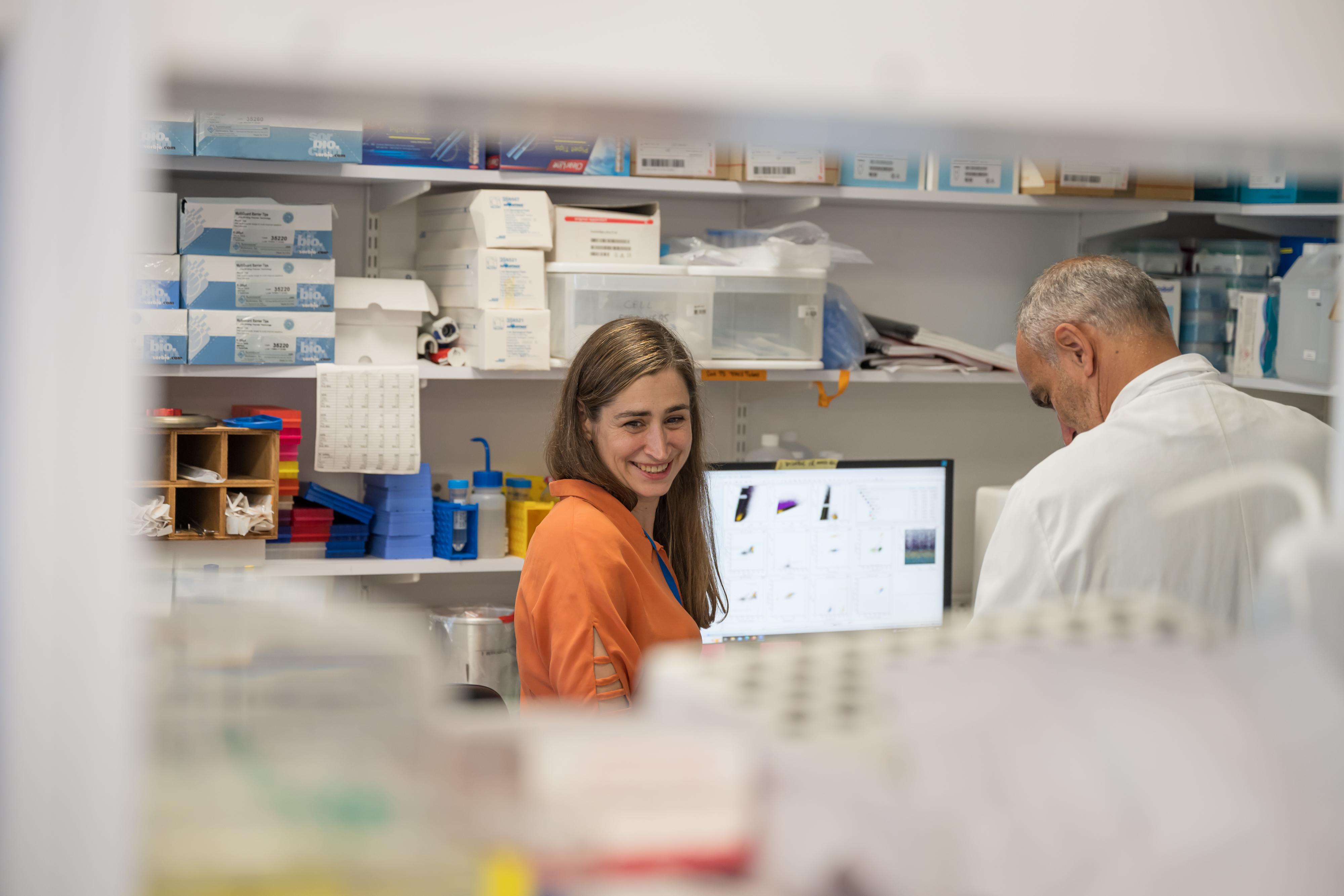Researchers at the Francis Crick Institute have discovered that pregnancy hormones rewire the brains of expectant mothers, which could explain the “baby brain” phenomenon experienced by some new mothers.

- Researchers at the Francis Crick Institute have shown that pregnancy hormones “rewire” the brain to prepare mice for motherhood.
- Estrogen and progesterone modify certain neurons. This would enable parental behavior to be activated even before the baby arrives.
- These changes could also explain the phenomenon of “baby brain”.
Frequent forgetfulness, concentration problems, difficulty processing and retaining information… of Many young mothers claim to have lost part of their thinking and memorization skills since the birth of their child. This phenomenon even has a name: “baby Brain“. Researchers from the Francis Crick Institute have found an explanation for the cognitive difficulties they encounter. Their experiment, carried out with mice and presented in the journal Science on October 5, seems to indicate that pregnancy hormones “rewire” the brains of future mothers.
Moms’ brains are changed by pregnancy hormones
To try to better understand maternal behavior in babies’ first weeks, researchers studied mice that had just given birth. They noticed that females began to exhibit maternal behavior late in pregnancy, and that it was not necessary for them to see their young to have it.
By analyzing the nerve cells present in an area of the brain, called area preoptic median (APOM) and associated with parenthood, scientists have found that these are affected by pregnancy hormones, particularly estrogen and progesterone.
While estradiol (estrogen, editor’s note) reduces the activity of these neurons and paradoxically increases their excitability, progesterone, for its part, recable permanently this node of circuits by promoting the recruitment of new synapses. Furthermore, theteam noticed that when the neurons of theAPOM are rendered insensitive to these two hormones, the onset of parental behavior, observed during pregnancy, disappears. Furthermore, the mice studied did not show any maternal behavior after giving birth.
“While some of these changes lasted at least a month after delivery, others appear to be permanent, suggesting that pregnancy may lead to rewiring long term of the female brain”specifies communicated.
Hormone : This rewiring of the brain could explain the “baby brain“
For researchers, these changes could explain why some young mothers have cognitive difficulties during their child’s first months.
Jonny Kohl, who participated in this research, explains: “We know that the female body changes during pregnancy to prepare to care for the baby. One example is milk production, which begins well before childbirth. Our research shows that such preparations also take place in the brain.”. He keeps on “We believe that these changes, often referred to as “baby brain»cause a change of priority: virgin mice focus on mating, so they do not need to respond to other females’ young, while mothers must engage in robust parental behavior to ensure the survival of her offspring. What’s fascinating is that this change doesn’t happen at birth. The brain prepares much earlier for this big life change.”
Rachida Ammarifirst author with doctoral student Francesco Monacoadds: “We demonstrated that there is a window of plasticity in the brain to prepare for future behavioral challenges.”
The researchers believe that the observations they made on mice can be transposed to humans, because women experience similar hormonal changes during pregnancy, and these should therefore have the same effects on their area preoptic median.
















